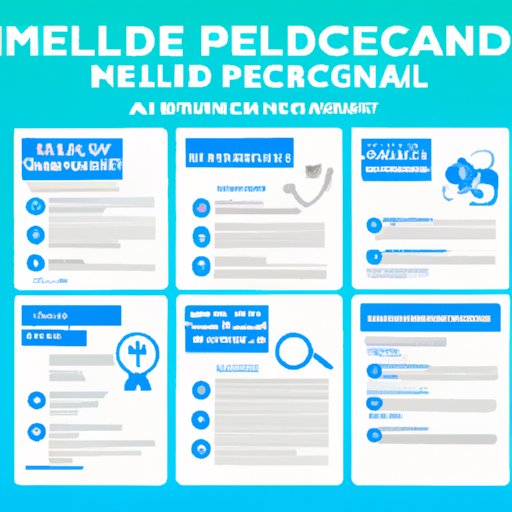Introduction
Medicare is a federal health insurance program for people 65 and older, as well as some younger people with disabilities or End-Stage Renal Disease. It provides financial assistance for medical care, including doctor visits, hospital stays, and prescription drugs. Understanding how to get Medicare is important for those who need it in order to access healthcare services. This article will explore the eligibility requirements, different plans and coverage options, and the application process.
Researching Medicare Eligibility Requirements
The first step in getting Medicare is determining if you are eligible. Generally, you must be at least 65 years old and a U.S. citizen or permanent resident to qualify. Other requirements may vary depending on your income, assets, and other factors. You should research these requirements thoroughly to ensure that you meet all of the necessary criteria.
Once you have established your eligibility, you will need to gather certain documents to apply for Medicare. These include your Social Security number, proof of citizenship or residency, and proof of age. You may also need to provide documentation of previous work experience or military service if applicable.
Understanding Medicare Plans and Coverage Options
Once you have established your eligibility, you will need to research the different plans and coverage options available. Medicare offers four main plans: Original Medicare (Part A and Part B), Medicare Advantage (Part C), Medicare Prescription Drug (Part D), and Medicare Supplement Insurance (Medigap). Each plan has its own set of benefits and coverage levels, so it is important to compare them to find the best fit for your needs.
For example, Original Medicare consists of two parts: Part A covers hospital expenses, while Part B covers doctor visits and other outpatient services. Medicare Advantage plans combine Part A and Part B into one plan and often offer additional benefits like vision, dental, and hearing coverage. Medicare Prescription Drug plans cover medication costs, and Medigap plans help cover out-of-pocket expenses not covered by Original Medicare.

Applying for Medicare Benefits Online
Once you have determined which plan is the best fit for you, you can apply for Medicare benefits online. The application process is simple and straightforward, and you can typically expect to receive a response within 10 days. During the application process, you will need to provide information about yourself, such as your name, address, date of birth, and Social Security number. You will also need to provide information about your current healthcare coverage, if any.
It is important to note that the online application process only applies to Original Medicare, Medicare Advantage, and Medicare Prescription Drug plans. If you wish to apply for a Medigap plan, you will need to contact your state’s Medicaid office.

Completing a Medicare Enrollment Form
After you have applied for Medicare benefits online, you will need to complete a Medicare enrollment form. This form will ask for information about yourself and your healthcare coverage. You will need to provide your name, address, date of birth, Social Security number, and contact information. You will also need to provide information about your current healthcare coverage, if any.
It is important to answer all questions accurately and completely. If you make a mistake or leave out any important information, your application may be delayed or denied. Once you have completed the form, you will need to sign it and return it to the address provided.
Contacting Your State’s Medicaid Office
If you wish to apply for a Medigap plan, you will need to contact your state’s Medicaid office. They can provide you with more information about the different plans and coverage options available, as well as help you understand the application process. The Medicaid office can also help you determine if you are eligible for any special programs or discounts.
In addition, the Medicaid office can provide you with resources to help you understand your rights and responsibilities as a Medicare beneficiary. They can also help you find providers in your area that accept Medicare payments.
Consulting a Medicare Advisor
If you are still feeling overwhelmed or confused by the process of getting Medicare, you may want to consider consulting a Medicare advisor. A Medicare advisor is a qualified professional who can help you understand the different plans and coverage options available, as well as guide you through the application process. They can also help you find providers in your area that accept Medicare payments.
When looking for a Medicare advisor, it is important to make sure they are qualified and experienced. You should also read reviews and check references to ensure that you are working with a reputable individual.
Conclusion
Getting Medicare can be a confusing and overwhelming process. However, with research and understanding of the eligibility requirements, different plans and coverage options, and the application process, it is possible to successfully apply for and receive Medicare benefits. It is also important to contact your state’s Medicaid office and consider consulting a Medicare advisor for guidance and advice.
By researching your options and taking the time to understand the process, you can make sure that you are making the best decision for your healthcare needs. With the right preparation and knowledge, you can get the most out of your Medicare benefits.
(Note: Is this article not meeting your expectations? Do you have knowledge or insights to share? Unlock new opportunities and expand your reach by joining our authors team. Click Registration to join us and share your expertise with our readers.)
